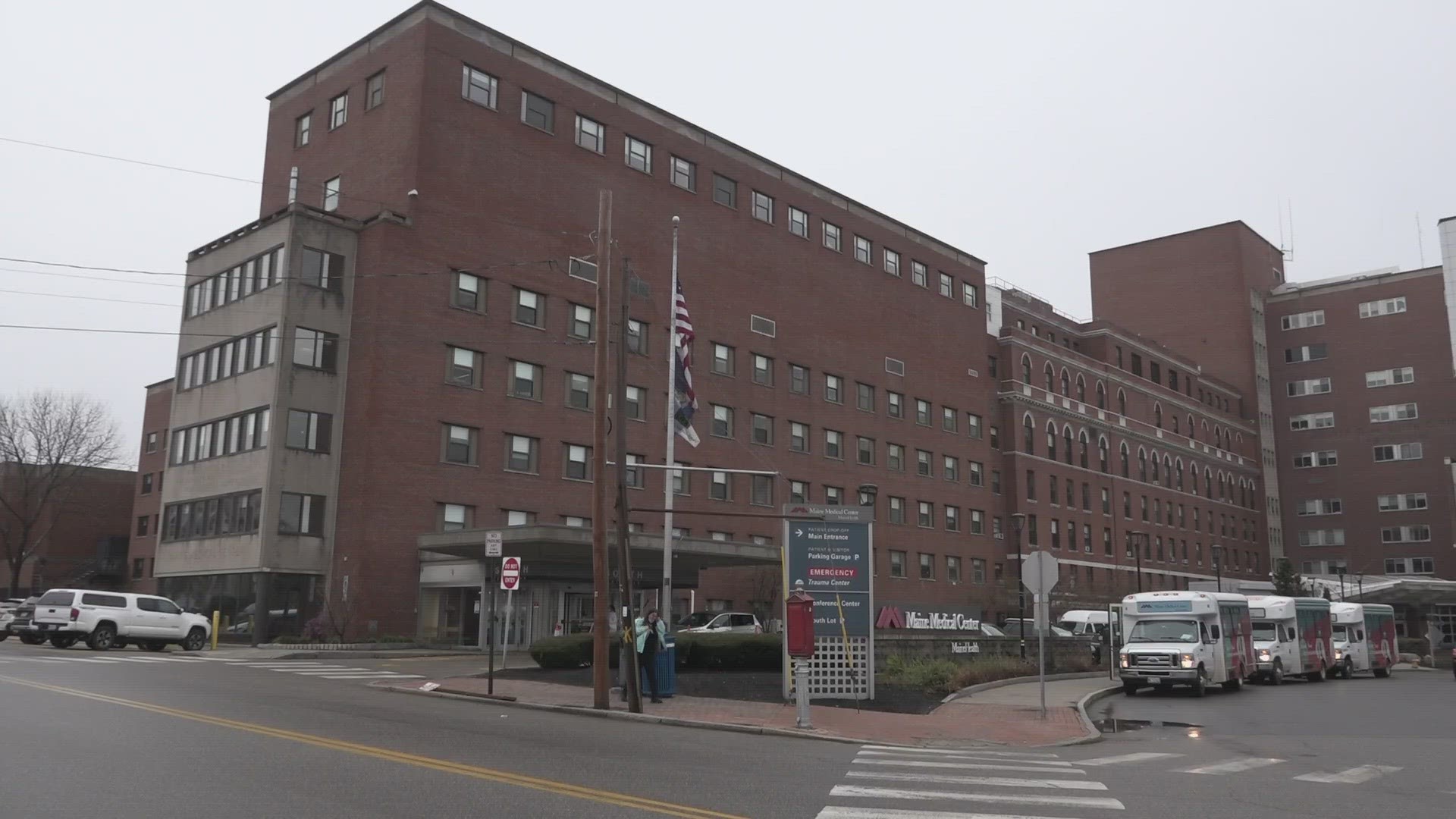AUGUSTA, Maine — Axels Samuntu of South Portland once lived a very different life.
He has been in Maine for nearly eight years but was born and raised in the Democratic Republic of the Congo. That's where he went to school, earning a Doctor of Medicine and practicing as a general physician.
In 2016, Samuntu and his wife moved to the United States and landed in Maine. He spoke no English but immediately began taking classes, eventually going to Southern Maine Community College for EMT training and then applying to the University of Southern Maine, where he's earning his second graduate certificate in the public health program. Samuntu also works full-time at the Maine Centers for Disease Control & Prevention but not as a doctor. He still hasn't been able to get his licensing to do so.
"It’s like you already earned your high school diploma, and they’re asking you to go to elementary school," Samuntu said about his frustrations.
Samuntu is one of a handful of immigrants who spoke at a public hearing about a month ago for LD 937, "Resolve, to Establish the Commission Regarding Foreign-trained Physicians Living in Maine."
This bill would create a commission, made up of educational leaders, immigrants, and legislators, to examine the barriers people who were trained as doctors in other countries face when they want to practice in Maine.
LD 937 got a unanimous "ought to pass, as amended" vote by the Committee on Health Coverage, Insurance and Financial Services. Bill sponsor Rep. Kristen Cloutier, D-Lewiston, said to her, that's encouraging.
"There are barriers around language. There are barriers around paperwork," Cloutier said about some of the issues foreign-trained physicians face. "I mean, even when we talk to folks who were born and raised in the state of Maine or in other states, transitioning credentials from other places to the state of Maine can be complicated, just in terms of the amount of paperwork and the types of paperwork that need to be filed."
Cloutier said another big obstacle for asylum seekers, immigrants, and refugees in this situation is money.
"When folks come over here as asylum seekers, they aren’t able to obtain a work permit for sometimes up to two years," Cloutier said. "They’re trying to get by every day without being able to work, so the additional expense of trying to get those credentials translated to the state of Maine can be substantial."
Clovis Lemba of Portland has been in Maine for a decade but is also from the Democratic Republic of the Congo, where he worked as a physician in surgery, trauma, orthopedics, and internal medicine. He hasn't been able to get his licensing to work in Maine, either, and said he feels like he's not even using 20 percent of his skills in his current job.
"Maine must grow. People must grow. Science must grow, and welcoming must grow also," Lemba said.
Lemba said when he first arrived in our state, he received a lot of help from Portland Adult Education — specifically, from an employee named Sally Sutton. Sutton is now the policy specialist for the New Mainers Resource Center at Portland Adult Education. She worked with Cloutier to create this legislation.
"The longer you’re out of medical school, the less competitive you are to get into a residency program," Sutton said about a need to make the process faster for foreign-trained physicians.
Cloutier and Sutton said a change to the system wouldn't just benefit asylum seekers, immigrants, and refugees. It would also help hospitals, which have been hurting from a workforce shortage. Additionally, it would be positive for New Mainers going to the hospital.
"If Maine wants to be able to provide appropriate care to its immigrant population, it’s best to have immigrants who are part of the healthcare providers who are providing those services," Sutton said.
A date for this bill to be heard in the Maine House of Representatives has not been set yet. You can read more about it here.

